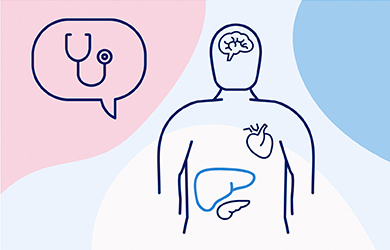Insulin has long been an essential treatment of type 1 diabetes, but
are there alternative treatment methods available as science and
medicine progress?
Pancreatic islet transplantation is one experimental treatment
for type 1 diabetes, currently undergoing clinical trials in the US.
Doctors take islets (from the pancreas) with healthy beta cells and
inject them into a vein that carries blood to the liver. The islets
begin to make and release insulin inside the recipient’s body. A phase
3 clinical trial conducted by the National Institutes of Health (NIH)
found that '1 year after islet transplantation, nearly 9 out of 10
transplant recipients had an A1C level below 7 percent
and did not have episodes of severe hypoglycemia' . 7
Once-weekly insulin is another promising research area for
treatment of both type 1 and type 2 diabetes. Some companies are
looking into developing basal insulin that can be administered once a
week, which would make it easier for most to follow treatment plans.
In 2021, findings from a trial with type 2 diabetes participants were
published with promising results. 14,15
Research into alternative treatment of type 1 diabetes continues,
but stem cell-based implants seem to be at the forefront of testing.
Natural treatment for diabetes and permanent treatment for diabetes
are also progressive research areas.






